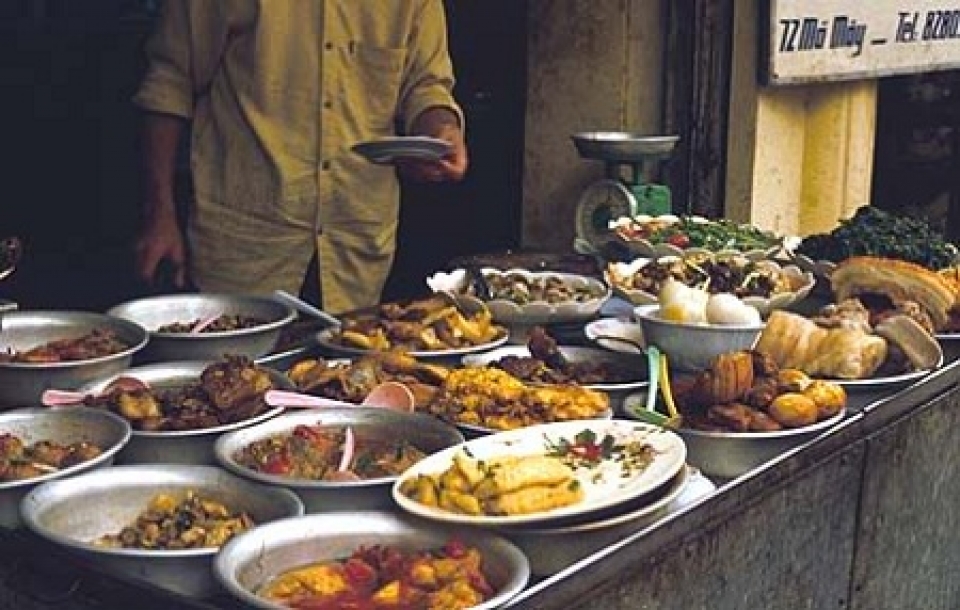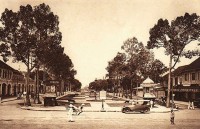
Com bui (Dust meal)
Latest
| TIN LIÊN QUAN | |
| The month of festivities | |
| Tet and the Vietnamese cultural identity | |
Quán cơm bình dân (popular restaurants) of this kind were very common in former Sai Gon and also in some parts of Ha Noi in the old days but, unlike their counterparts today, they were frequented by people of the middle class, government employees, students and such.
 |
| Com bui restaurant in the old days. |
The appearance of the “fast food” industry in Ha Noi is a social phenomenon worthy of attention. A sign of the time, it indicates certain changes in the customs of the urban family.
In the old days eating at home was a sacred thing. Then came the two long wars during which the entire population was displaced, and the introduction of the continuous system for workdays which allows just a short break at noon. Lunch, therefore, was taken right at one’s work place, brought from home in the morning in a pail. Now going out for cơm bụi has become a habit and, as far as the middle class is connected, it indicates democratisation in etiquette as well as an improvement in their finances because, though relatively modest, a meal at one of those sidewalk restaurants costs a great deal more thanh a lunch prepared by the woman of the family.
Why the name cơm bụi? In South Vietnam during the war, there were hundreds of thousands of little tramps who styled themselves bụi đời, or “dust of life.” Those homeless children had their mealss at sidewalk stalls whenever they had the means. Thus “bụi” has become an adjective to mean “roving” or “marginal”.
 | From Sai Gon to Ho Chi Minh City Many foreign friends of mine prefer Ha Noi to Sai Gon (Ho Chi Minh City). They find the latter too mordernised, almost another Bangkok. Its ... |
 | A visit to Three-Basin Lake - Hồ Ba Bể In the midst of a vast expanse of emerald water a small island emerges, made up of big blocks of limestone which look as if ... |
 | A toast to Vietnamese rice wine It is traditional in Viet Nam that women do not drink alcohol as it is considered to be a man’s domain. One Sino-Vietnamese proverb claims: ... |

















